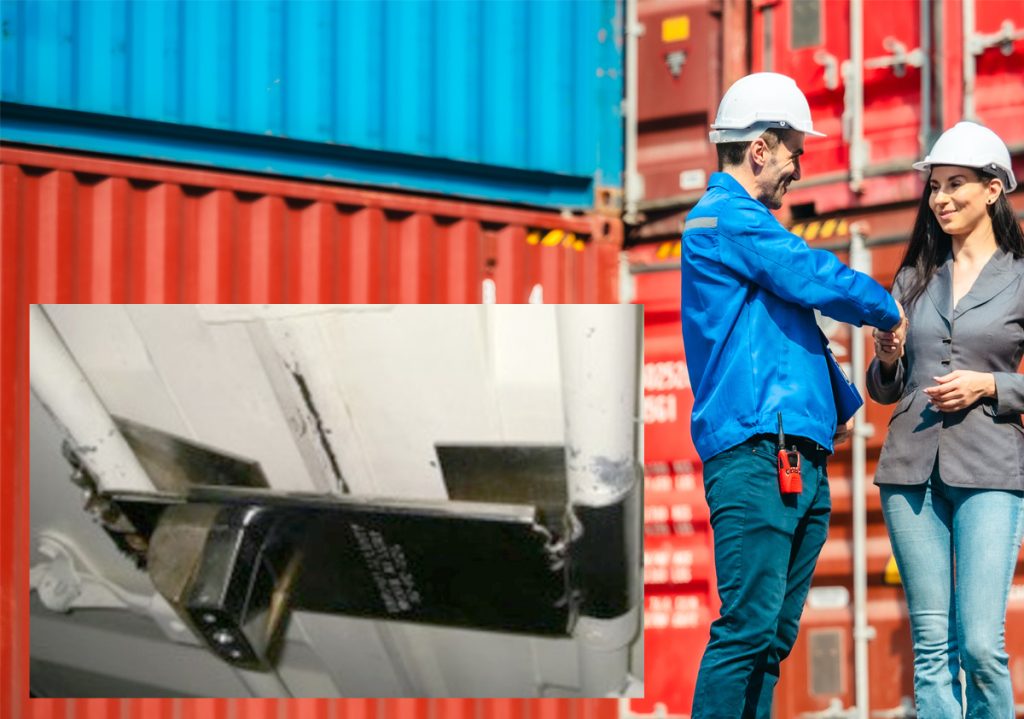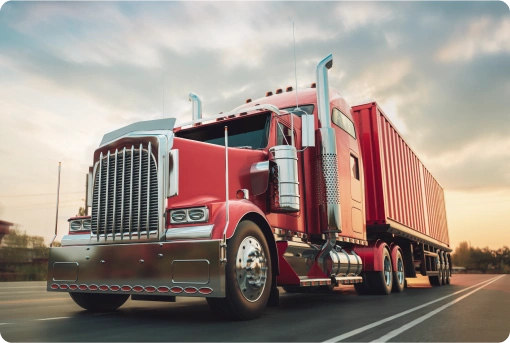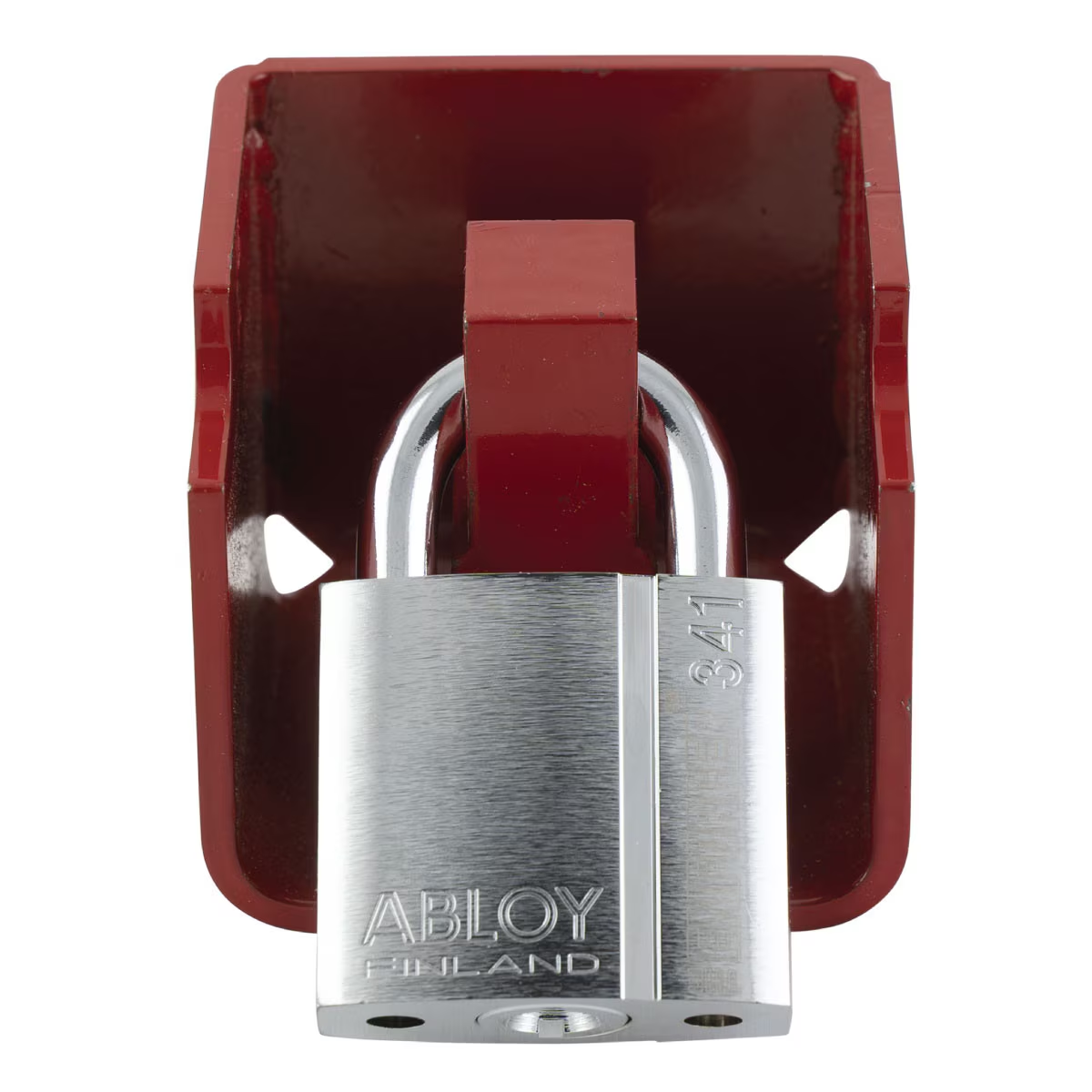Why Parked Trailers Are at Risk
Trailers left unattached are often loaded and ready for pickup, waiting for their next dispatch. In busy yards or staging areas, these units may sit unguarded for hours or even overnight. Cargo thieves know this, and they exploit the opportunity by attaching a tractor to the trailer and driving off before anyone notices.
The problem is simple: once the air brake system is charged, the thief can release the brakes and move the trailer. Without a way to block access to that air line connection, even a secured lot may not stop a determined criminal.
This is where glad hand locks come in, stopping theft attempts before they start.
What Is a Glad Hand Lock?
A glad hand lock is a compact, heavy-duty security device that covers the glad hand connection on a trailer’s air brake system. The glad hand, named for its handshake-like shape, connects the air lines between a tractor and trailer.
By locking over the trailer’s emergency glad hand, these devices block airflow from any unauthorized tractor, making it impossible to release the brakes. Without air pressure, the brakes remain engaged, effectively immobilizing the trailer.
It’s a simple concept with a powerful result: thieves can’t tow what they can’t move.
How Glad Hand Locks Work
When a tractor hooks up to a trailer, the driver connects the emergency air line using the glad hand fitting. Air pressure from the tractor fills the trailer’s brake system, releasing the brakes and allowing movement.
A glad hand lock interrupts that process by sealing off the trailer’s emergency glad hand port. The lock’s steel body covers the fitting, and a padlock or integrated locking mechanism keeps it in place. Even if a thief connects an air line, no air can flow through.
Without that air supply, the brakes remain locked, making it impossible to move the trailer without detection or significant effort. Most thieves will not bother trying to remove or cut through a hardened lock when they can simply move on to an easier target.
Made for Security: Hardened Steel Construction
Glad hand locks are built for real-world durability. Quality models are made from hardened metal that resists cutting, prying, and drilling attempts. This is especially important because parked trailers are often in exposed environments where thieves may try to use tools to remove or damage locks.
Unlike lightweight metal or plastic covers, hardened steel locks are engineered for maximum resistance to tampering. Many are powder-coated for corrosion resistance, ensuring long-term use in demanding transportation settings.
Quick and Easy for Drivers to Use
While strong security is essential, fleets also need solutions that don’t slow operations down. Glad hand locks are designed to be driver-friendly and can be installed or removed in seconds.
Simply slide the lock over the glad hand connection, close the body, and secure it with the provided padlock. When it’s time to move the trailer, the driver unlocks and removes the device just as quickly.
This ease of use encourages consistent adoption across the fleet, ensuring every parked trailer stays protected without added operational friction.
High Visibility: A Built-In Theft Deterrent
Many glad hand locks are available in bright, high-visibility colors such as red or yellow. These serve a dual purpose: they make it easy for drivers and yard managers to confirm that the trailer is secured and they act as a strong visual deterrent to would-be thieves.
A thief scouting for an easy target is far less likely to attempt theft when they can clearly see a lock in place. The visibility alone often prevents an incident before it even begins.
Weatherproof Design for All Conditions
Trailers operate in every climate, from summer heat to freezing winter temperatures, and your security hardware should be built to perform in all of them.
Glad hand locks feature weather-resistant coatings and sealed designs that keep moisture, dust, and road grime out. Whether you’re operating in snow, rain, or desert conditions, a weatherproof lock ensures smooth performance without rust or seizing.
This reliability makes glad hand locks a practical, all-season security solution for fleets of all sizes.
Supporting Cargo Security Best Practices
Cargo security isn’t just about protecting assets, it’s about maintaining operational integrity, driver safety, and customer trust. Using devices like glad hand locks aligns with industry best practices that emphasize layered protection.
By physically immobilizing parked trailers, fleets demonstrate proactive risk management and compliance with recommended cargo security protocols. It’s a small step that reflects a serious commitment to theft prevention.
A Small Investment With a Big Payoff
Compared to the cost of even one cargo theft incident, the price of a glad hand lock is negligible. Stolen trailers can result in hundreds of thousands of dollars in direct losses, not to mention the cost of insurance claims, customer impact, and downtime.
For just a fraction of that, fleets can add a layer of defense that directly prevents trailer movement and deters theft. Glad hand locks deliver a high return on investment by eliminating easy opportunities and reducing theft-related risks.
It’s an example of how the right hardware doesn’t just protect assets, it protects profitability.
Choosing the Right Glad Hand Lock
When selecting a glad hand lock for your fleet, consider the following key factors:
- Material Strength: Choose hardened metal for superior resistance to attacks.
- Visibility: Brightly colored models increase deterrence and make inspections easier.
- Weather Resistance: Powder-coated or corrosion-resistant finishes extend lock life.
- Ease of Use: Drivers should be able to apply and remove the lock quickly without tools.
Transport Security’s ENFORCER® line of glad hand locks checks all these boxes, offering dependable trailer immobilization that meets the needs of today’s fleets.
The Role of Glad Hand Locks in a Layered Security Plan
While no single device can prevent every theft, glad hand locks are a critical component of a layered cargo security strategy. When combined with other ENFORCER® solutions such as king pin locks, trailer door hasps, and seal guard locks, they create multiple barriers that make theft attempts increasingly difficult and time-consuming.
Each layer buys valuable time, increases the chance of detection, and ultimately reduces the likelihood of loss.
Conclusion
Trailer glad hand locks are one of the most effective, affordable, and easy-to-use tools for preventing cargo theft. By blocking access to the air brake system, they stop thieves from releasing the brakes and moving parked trailers, eliminating one of the most common methods of trailer theft.
Built from hardened steel, weather-resistant, and easy to identify, these locks protect fleets every day from unnecessary losses and operational headaches.
In an industry where time, cargo, and reputation matter, a glad hand lock is a small investment that pays off every time a thief walks away.



